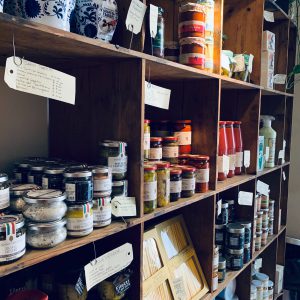Riverdale Park
Area A – Improving Cross-Cultural Communication and Harmony/Social Well Being
Riverdale Park is interested in collaborating with the University of Maryland to provide food supplies for the hungry and low-income residents of the Town. Students could explore the economic viability of local food production (e.g., community gardens, non-profit and for-profit urban farming), food recovery, and distribution of food and money from local stakeholders. The examination of the current impact of University efforts such as the Field of Greens, the Food Recovery Network and Terps Against Hunger can be part of this effort.

Riverdale Park is the home to many residents for whom English is not the first language. Students could explore the delivery of translation services in the most efficient way.
In addition to improving translation services to which certainly can improve cross-cultural understanding, Riverdale Park is interested in collaborating with the University of Maryland in a review of current efforts. The first step would be the identification of what these areas are, but students could propose and/or develop a process to conduct this review, and then to reduce or eliminate areas of misunderstanding, and then to reduce the negative impact of those challenges.
Certainly related to the previous opportunity (RP A3), Riverdale Park would like to specifically explore current and potential events as a means of mitigating cross-cultural misunderstandings. Students could explore the marketing potential, local business impacts, and other social benefits of Riverdale Park events that address this opportunity.
Area B – Managing Stormwater while Improving Quality of Life
Develop coordination with upstream jurisdictional efforts related to Wells Run (See Watershed Improvement Plan in Hyattsville, and Wells Run Project A1 in University Park). Students could also study the pipesheds of Riverdale Park (see University Park project A3, and College Park project A3)
Including the Wells Run watershed and associated pipe shed, every drop of water that runs off into local waters drain to the Northeast Branch of the Anacostia River. The Northeast Branch’s main stem flows through Riverdale Park in a channelized flow that was created in response to decades of flooding during the mid-20th Century.
Efforts to restore and protect the Northeast Branch must be done carefully to protect against unintended flooding consequences. New technology in water management design improve this possibility but much of the flow is from upstream, and out of the control of Riverdale Park. Students could use a business process to look at the financing of development and implementation of a watershed implementation plan that would serve as Riverdale Park’s contribution to the restoration of the Northeast Branch. Students could look at the impacts in neighboring Edmonston of the “complete street” of Decatur Street, with special focus on the economic development and job support implications of the work.
The Gosling Pond is an existing feature that could be of even greater value to the community. Students could evaluate the various methods, including costs and benefits, of improving the water feature and its immediate surroundings.
Area C – Developing Sustainable and Resilient Practices
Riverdale Park is interested in reducing waste, and wish for the best ideas on specifically how to do so. Students could evaluate every method of reducing waste, including reduced consumption, increased re-use and recycling, and programs of promoting residential and commercial participation. The research could include “pay-as-you-throw,” in which users of the Town’s public works waste management to move from a fixed rate to a per bag payment, greater distribution of recycling containers, and methods of promoting increases in composting or other recycling, with an analysis that develops a sense of the costs and benefits of each approach.
Riverdale Park is interested in reducing its carbon footprint and energy costs, and wish for the best ideas on specifically how to do so. The research could include recommendations for efficiency analysis of current consumption patterns, the potential for localized green energy (thereby potentially reducing the purchase of energy from the regional energy grid), and increased energy efficiency, with an analysis that develops a sense of the costs and benefits of each approach.
Sustainable Maryland has a program designed for reducing the nitrogen load in local waterways due to animal waste from pets. Riverdale Park could benefit from such a program, and students could provide an analysis of the best way of efficiently doing so.
